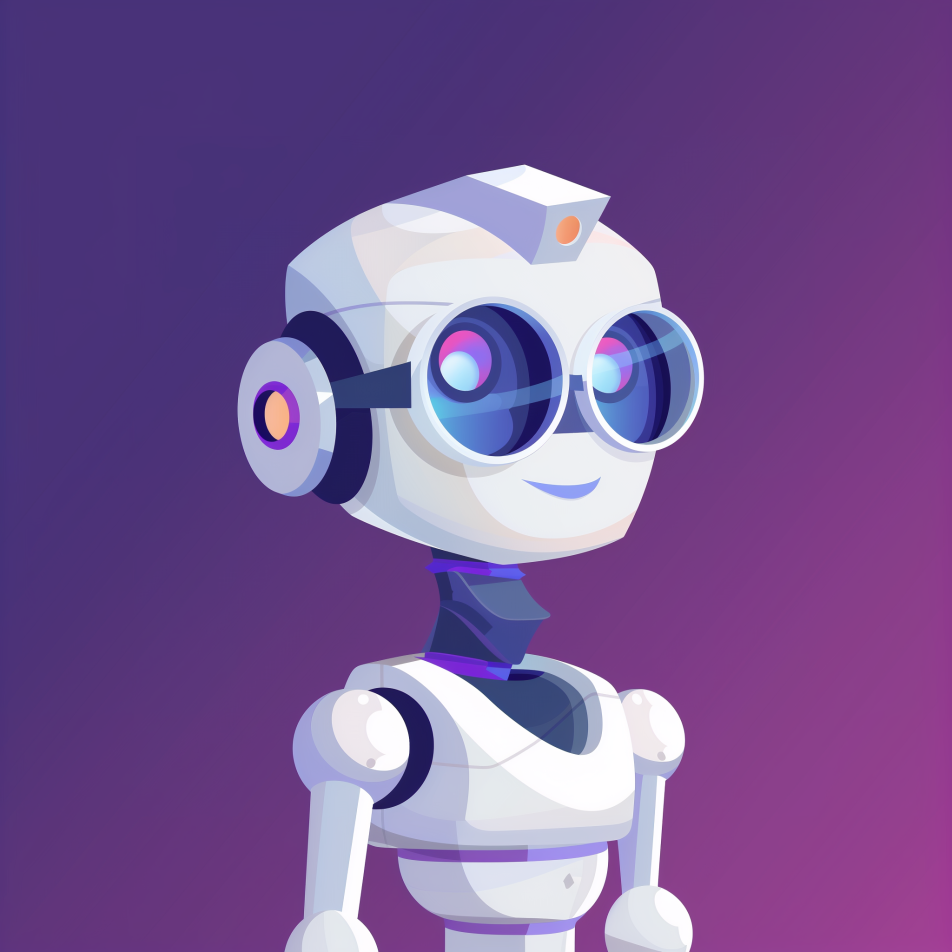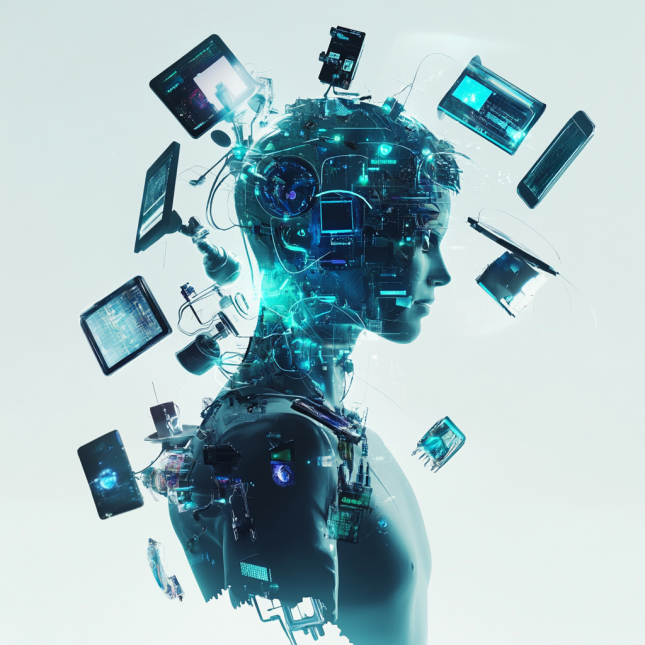summary
Lead Section This week in artificial intelligence (AI) has been marked by significant advancements across various sectors, with notable contributions from companies such as Boston Dynamics, Tesla, and Amazon. Boston Dynamics’ humanoid robot, Atlas, has demonstrated remarkable agility and dexterity, showcasing the potential of AI in robotics and setting a new benchmark for humanoid technology.[1][2] Meanwhile, Tesla continues to push the boundaries of autonomous driving with its Full Self-Driving (FSD) technology, which leverages advanced machine learning algorithms to navigate complex driving environments, raising both excitement and concerns about the implications for safety and regulation.[3][4][5] Amazon has also made headlines with the introduction of its generative AI assistant, Amazon Q, aimed at optimizing business operations and enhancing productivity for developers. By automating tasks such as coding and debugging, Amazon Q promises to transform workflows and decision-making processes across various organizations.[6][7] However, as AI technologies become more integrated into everyday life, ethical considerations have come to the forefront, including issues of algorithmic bias and the equitable distribution of AI benefits.[8][9] The surge in AI applications highlights not only the rapid pace of innovation but also the pressing need for discussions around the responsible use of AI. As businesses ramp up investment in AI technologies, projected to reach $110 billion annually by 2024, the challenge lies in balancing innovation with ethical frameworks that prioritize human values and accountability.[10][11] The ongoing discourse around AI ethics is essential as these technologies continue to shape our future, ensuring they contribute positively to society while minimizing potential harms.
Overview
Artificial Intelligence (AI) is fundamentally transforming various industries, including autonomous vehicles (AVs), robotics, and electric vehicle (EV) technologies. At the forefront of these advancements is the integration of AI with edge computing, a concept referred to as edge intelligence, which enhances the functionality and safety of AVs by leveraging real-time data processing capabilities[12]. This innovative approach has become a focal point for research, with numerous studies exploring its building blocks—namely AI and edge computing platforms[12]. In the context of AVs, edge intelligence not only facilitates autonomous navigation but also optimizes communication between vehicles, utilizing algorithms that enhance performance metrics such as throughput, packet loss rate, and average delivery latency[12]. This optimization is crucial for maintaining a reliable connection in vehicular ad hoc networks, ensuring that vehicles can communicate effectively while on the move[12]. Additionally, companies like Tesla are leading the charge in applying AI to enhance EV autonomy and overall performance. Tesla’s investment in AI infrastructure, including specialized algorithms and real-world evaluation systems, aims to set a new standard in the industry[13]. By refining aspects such as battery management and autonomous driving capabilities, Tesla demonstrates the significant potential AI holds for advancing automotive technology[13]. AI’s impact extends beyond just vehicles; it is revolutionizing robotics as well. For instance, Boston Dynamics’ Atlas robot showcases the application of advanced AI in dynamic planning and control, enabling complex locomotion tasks in challenging environments[14]. The ongoing development in AI applications also raises ethical considerations, particularly regarding algorithmic bias and the responsible use of technology in various sectors[9][8]. As discussions about AI’s societal implications continue, it is essential to ensure that advancements are guided by ethical frameworks that prioritize human values and accountability[9].
Boston Dynamics’ Atlas
Overview
Atlas is a bipedal humanoid robot developed by Boston Dynamics, unveiled to the public on July 11, 2013. Standing at approximately 5 feet (1.5 meters) tall and weighing around 190 pounds (85 kg), Atlas is designed to mimic human movement and behavior, showcasing remarkable agility and dexterity in its actions[1][2]. Equipped with 20 degrees of freedom, Atlas operates using a combination of battery power and hydraulic actuation, supported by three onboard computers for processing control and perception tasks[1].
Capabilities
Atlas is renowned for its impressive physical abilities, including running, jumping, and performing complex gymnastic routines such as backflips and parkour. It utilizes RGB cameras and depth sensors to perceive its environment, allowing it to navigate complex terrains and obstacles effectively[15][2]. The robot can grasp and manipulate objects, making it suitable for various applications in hazardous environments, such as nuclear power plants or disaster zones, where human safety is a concern[15].
Applications
The capabilities of Atlas extend into multiple sectors, including construction, manufacturing, and research. It serves as a platform for robotics research, enhancing our understanding of humanoid locomotion and human-robot interaction. Boston Dynamics aims for the new fully electric version of Atlas, announced on April 17, 2024, to provide commercial solutions in industrial environments, paralleling the functionalities of other robots like Spot and Stretch[1][16].
Reactions and Impact
The release of Atlas has elicited mixed reactions. The New York Times described its debut as a significant milestone in humanoid robotics, marking a step toward integrating robots into physical spaces[1]. However, the unveiling of the new fully electric Atlas in 2024 raised concerns, with many describing it as “unnerving,” particularly in the context of its advanced capabilities showcased in its reveal video[1]. As a subject of ongoing research and development, Atlas represents a cutting-edge exploration into the potential of humanoid robotics and their future roles in various industries[16][2].
Tesla’s AI Edge
Tesla has emerged as a leader in the integration of artificial intelligence (AI) within the automotive industry, pushing the boundaries of innovation and technology. Central to Tesla’s AI initiatives is its Full Self-Driving (FSD) technology, which employs advanced machine learning algorithms to enable vehicles to navigate complex driving environments autonomously. This system is not solely reliant on rule-based algorithms but instead leverages vast amounts of sensor data to improve its performance over time[3][4].
Integration of AI in Operations
AI is integral to Tesla’s manufacturing processes, quality control, and automation efforts. By utilizing machine learning for production planning, Tesla aims to enhance efficiency and drive innovation within the company. The ambitious goal of selling 20 million electric cars underscores the critical role that AI plays in achieving this target[4][17]. Additionally, Tesla’s commitment to building its own hardware ensures optimal performance and seamless integration of AI systems[3].
Advancements in Autonomous Driving
At the heart of Tesla’s efforts in autonomous driving is a sophisticated cluster of cameras and sensors designed for computer vision. This technology allows vehicles to interpret and understand their surroundings in real time, detecting and tracking objects such as pedestrians and traffic signs. By continuously processing high-resolution visual data through advanced machine learning algorithms, Tesla aims to achieve full autonomy, where vehicles can operate without human intervention[5]. Such advancements promise not only to enhance safety but also to revolutionize how people interact with transportation systems[18].
Future Developments and Challenges
Looking forward, Tesla’s AI technology has the potential to unlock new capabilities, particularly as advancements in quantum computing emerge. However, the journey toward fully autonomous vehicles is accompanied by challenges, including data privacy concerns and the need for continuous system improvements to ensure reliability and safety[4][5]. Tesla’s AI technology is thus not just a peripheral aspect of the company’s vision but is deeply embedded in its core operations and future direction[3][18].
Amazon’s Q AI Assistant
Amazon Q is a generative AI-powered assistant developed by Amazon Web Services (AWS), designed to optimize business operations and enhance productivity for developers and employees alike. Initially announced in November 2023, Amazon Q became generally available for developers and businesses in early 2024, accompanied by free courses aimed at facilitating its use[6][7].
Features and Capabilities
Amazon Q operates as a secure AI assistant, leveraging internal data to assist with various technical tasks such as coding, debugging, multi-step planning, and reasoning. This capability allows developers to focus more on high-level tasks rather than mundane coding-related responsibilities[6][19]. The assistant provides immediate and relevant information, helping streamline workflows, accelerate decision-making, and spark creativity across organizational contexts[7][20].
Target User Groups
The assistant is available in several formats, including Amazon Q Developer and Amazon Q Business, both of which are tailored to different user needs. The Amazon Q Developer edition aims to alleviate the time developers spend on non-coding tasks, which can currently consume as much as 70% of their work hours[6][19]. Meanwhile, Amazon Q Business is geared toward helping employees resolve workplace queries and generate content by connecting to their company’s information systems and data[7][20].
Market Adoption and Feedback
Companies such as Accenture, GoDaddy, Sun Life, and Toyota have begun integrating Amazon Q into their operations. For instance, GoDaddy has highlighted the assistant’s ability to facilitate data analysis, allowing users to pose contextual business questions without needing to rely on ad-hoc dashboards, thereby enhancing their analytical capabilities[20]. Sun Life has also expressed enthusiasm about using Amazon Q Apps to streamline the development of customized applications, enhancing digital experiences for their clients[20].
Weekly AI Updates
AI in Business and Healthcare
Recent advancements in artificial intelligence (AI) have significantly impacted various industries, particularly healthcare and business operations. Firms are increasingly utilizing AI to streamline the sourcing of materials and products, integrating extensive datasets to enhance strategic decision-making. This capability is especially crucial in sectors like pharmaceuticals, where the high costs of product development can reach approximately $1 billion per new drug[10]. Healthcare experts anticipate that AI’s most immediate effects will be seen in data analysis, imaging, and diagnostics, potentially transforming treatment decision-making by aggregating vast medical knowledge[10]. As AI technology continues to evolve, global business expenditure on AI is projected to surge from $50 billion in the current year to $110 billion annually by 2024, despite economic downturns due to the COVID-19 pandemic[10]. Notably, the retail and banking sectors have emerged as the primary investors, each exceeding $5 billion in AI spending this year[10].
Ethical Considerations in AI Deployment
While the promises of AI hold significant potential for innovation and productivity, they also raise ethical concerns. The growing reliance on AI in decision-making processes across various sectors highlights the risk of exacerbating social and economic disparities, particularly along demographic lines[8]. Moreover, the potential for algorithmic bias poses a challenge, necessitating a focus on equitable AI practices to ensure that the benefits of AI advancements are distributed fairly[8].
Industry Highlights
Tesla AI Day
Tesla’s recent AI Day showcased significant developments in the field of artificial intelligence, attracting attention for its focus on ethical considerations and legislative frameworks related to AI applications[11]. The event highlighted the importance of addressing emerging ethical issues that accompany AI advancements, underscoring the need for a balanced approach to technology deployment in various sectors.
Amazon’s AI Innovations
Amazon has reported considerable success with its AI assistant, Amazon Q, which has notably reduced software upgrade times, resulting in savings of approximately $260 million and 4,500 developer-years of work[21]. This innovation reflects a broader trend of integrating AI into corporate infrastructure to enhance operational efficiency and drive cost savings.
The Role of AI in Media
AI’s impact extends to the media industry as well, where it can influence public opinion by recommending articles based on user interactions. This capability raises concerns regarding fairness and transparency, prompting discussions about the ethical implications of AI in shaping information dissemination and consumption[22]. The evolving landscape of AI continues to challenge industries to balance innovation with ethical responsibility as they navigate the digital economy.
Ethical Considerations in AI
The deployment of artificial intelligence (AI) technologies has ushered in significant ethical considerations, particularly concerning their application in military and surveillance activities. Companies like Google have established ethical guidelines that explicitly state they will not develop AI for weaponry or any technologies that could harm individuals or violate human rights norms[9]. The overarching concern is ensuring that AI systems are developed and implemented in ways that align with ethical standards, thereby preventing bias, unfairness, and lack of accountability in their outcomes[23][11].
Key Ethical Principles
AI ethics is underpinned by several fundamental principles, including fairness, transparency, accountability, and privacy[23]. These principles serve as moral guidelines to govern the creation and application of AI technologies. The balance between the benefits of AI and the potential risks, such as data privacy violations and job displacement, remains a central concern. Striking this balance is essential to ensure that AI serves humanity positively and equitably[23].
Importance of AI Ethics Training
Organizations are encouraged to implement comprehensive AI ethics training programs that not only cover technical aspects but also address the ethical, legal, and societal implications of AI[9][11]
. Such training is crucial for software developers and corporate decision-makers, as it fosters an understanding of their broader responsibilities in society. By instilling ethical considerations in daily operations, firms can help mitigate the risks associated with AI deployment, including potential harms to individuals and communities[9].
Remediation for AI-Induced Harm
There is a growing recognition of the need for remediation mechanisms to address damages caused by AI systems. This could involve legal avenues, arbitration, or negotiated processes to rectify harm suffered by individuals due to AI applications[9][23]. Establishing clear procedures for addressing AI-related incidents will enhance public trust and accountability, which are critical in an era where AI technologies increasingly permeate daily life.
Global Ethical Initiatives
Various organizations, including academic institutions and non-governmental organizations, have advocated for the establishment of ethical standards in AI development. Conferences such as the Future of Life conference have produced statements emphasizing that autonomous AI systems should be designed to align with human values and benefit humanity broadly[9][23]. Such initiatives highlight the collective effort needed to protect fundamental human rights in the realm of artificial intelligence.
References
[1]: Autonomous Vehicles Enabled by the Integration of IoT, Edge …
[2]: Unveiling Tesla’s AI Dominance: Revolutionizing EV Autonomy and Beyond
[3]: Optimization-based locomotion planning, estimation, and control design …
[4]: The role of corporations in addressing AI’s ethical dilemmas | Brookings
[5]: Eliminating Algorithmic Bias Is Just the Beginning of Equitable AI
[6]: Atlas (robot) | Wikipedia
[7]: Inside Boston Dynamics Atlas: Advancements in Robotics
[8]: Boston Dynamics Atlas review, advantages and features, How does Atlas …
[9]: Boston Dynamics Atlas robot: a full history – The Verge
[10]: Tesla’s A.I. Explained – And How It’s Advancing the Industry
[11]: Case Study: Tesla’s Integration of AI in Automotive Innovation
[12]: Tesla’s Integration of Artificial Intelligence in Vehicles: A …
[13]: The Cutting-Edge Tesla AI Technology that is Revolutionizing the …
[14]: Tesla AI: How Artificial Intelligence is Revolutionizing the Automotive …
[15]: Meet Amazon Q, the AI assistant that generates apps for you
[16]: Introducing Amazon Q, a new generative AI-powered assistant (preview)
[17]: Amazon Q Is an AI Tool That Handles Workplace Queries and Writes … – CNET
[18]: AWS-Announces-General-Availability-of-Amazon-Q-the-Most-Capable …
[19]: Ethical concerns mount as AI takes bigger decision-making role
[20]: AI Ethics And AI Laws Reveal Troubling Concerns From Tesla’s AI Day …
[21]: Boston Dynamics’ Atlas, Tesla’s AI Edge, Amazon’s Q AI … – Benzinga
[22]: 5 Ethical Considerations of AI in Business – Harvard Business School Online
[23]: AI Ethics in Action: Real-World Examples and Best Practices | Medium











